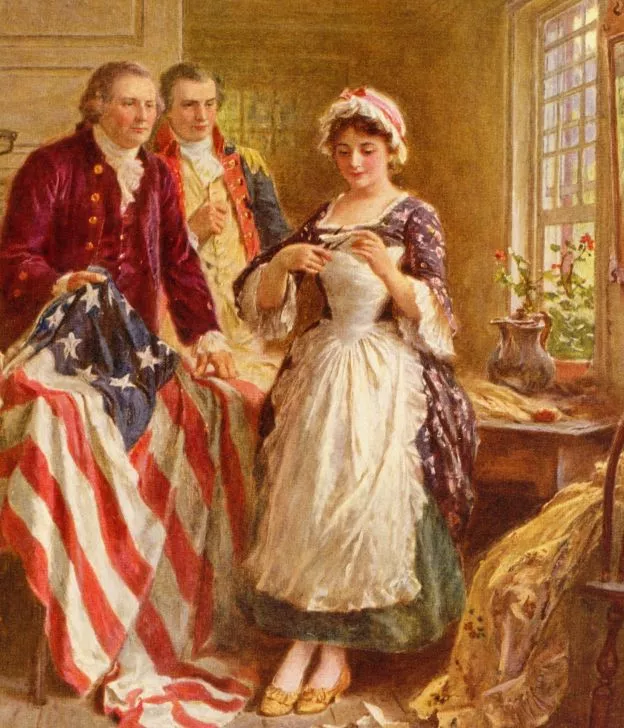
Focus on civics for America’s 250th birthday
Jack Miller Center President, Hans Zeiger, prepares us for America’s 250th birthday in 2026 by encouraging Americans to rally around civics.
With the Fourth of July upon us, we are nearly two years out from the 250th anniversary of American independence. If it’s anything like the Bicentennial in 1976, it will be a time of patriotic celebration and a focal point for shared commitments to our country and our communities.
The Bicentennial saw increased investment in museums, parks and public plazas, and it inspired a new wave of interest in American history. These would be welcome developments in 2026 as well. But above all, in this time of political strife when trust in our institutions and one another is running low, we need a shared cause — a national movement that is worthy of the occasion.
America’s 250th birthday should be a moment for us to rally around civics — the educational foundation of American self-government. As educational theorist E.D. Hirsch has pointed out, the American founders knew that education was essential, not just to personal success, but to the very survival of the republic. If ever we needed to recover the civic mission of education at every level — from kindergarten to college and beyond — it is now.
Of course, movements don’t happen overnight.
America’s 250th birthday would be a fitting goal for building a full-fledged civics movement that can unite left and right, reverse decades of intellectual neglect of America’s civic principles, and help millions of Americans to regain their faith in the country and in our fellow citizens.
American civics should start with the American idea, best expressed in the words of the Declaration of Independence in 1776. The writers of the Declaration asserted a common commitment to certain truths about human dignity and freedom, and these truths formed the basis of their vision for self-government in the new United States of America. At key moments in our history, marred as that history has been by the injustices of slavery and bigotry and other wrongs, Americans have returned to the noble, world-changing ideas of the Declaration as the basis for renewal, reform and responsible action.
Self-government only works when citizens take ownership of it. American democracy was always meant to be participatory, but that requires a certain baseline knowledge. The best way to prepare young Americans for their vocation as citizens is by introducing them to big ideas and important people, past and present. Americans such as Frederick Douglass or Rosa Parks show young people how important it is to stand up for what they believe in. Civic role models in our communities show each of us that we can make a difference in improving our own neighborhoods and civic institutions. And foundational documents like the Declaration of Independence and the Constitution can challenge and inspire us to take our part in the common cause of freedom.

In a time when we are surrounded by reminders of all that divides us, the Declaration of Independence remains the standard of America’s public philosophy: a bold declaration that people matter and that any just political order derives its power from the people.
The good news is that the national movement for civic education is on the rise. Legislatures in Indiana, New Hampshire, and Utah have enacted new K-12 civic education requirements.
At the Jack Miller Center, our network of 1,100 college professors on more than 330 campuses has become a force multiplier for stronger civic education for undergraduate students as well as K-12 social studies teachers. Other groups, such as the Bill of Rights Institute, the National Constitution Center, iCivics, and the American Legion — just to name four prominent examples among many other outstanding organizations — are drawing on the abundant resources of American civil society to give civics the attention it deserves. Lawyers’ associations like the Indiana Bar Foundation, business coalitions like the U.S Chamber of Commerce Foundation, and Business for America, and philanthropic foundations like the Daniels Fund of Colorado and the Robert McCormick Foundation of Chicago are taking leadership roles in this burgeoning movement. And in higher education, new schools of civic thought in eight states are reclaiming the civic mission of public universities with serious coursework on the intellectual foundations of American civic life.
As we celebrate the 250th anniversary of the Declaration of Independence, each of us can do our part to renew its public philosophy by getting involved in the movement for civic education. This ought to be the cause of our generation, and with so much at stake, we need not wait until 2026 to write to a legislator, ask a professional association board to weigh in, donate to a civic education nonprofit, or talk to a child or grandchild about the enduring importance of the Declaration.
This is our Declaration moment. Let’s make it count.
Zeiger is president of the Jack Miller Center, an educational venture to advance the history, documents and ideals we hold in common as Americans.
